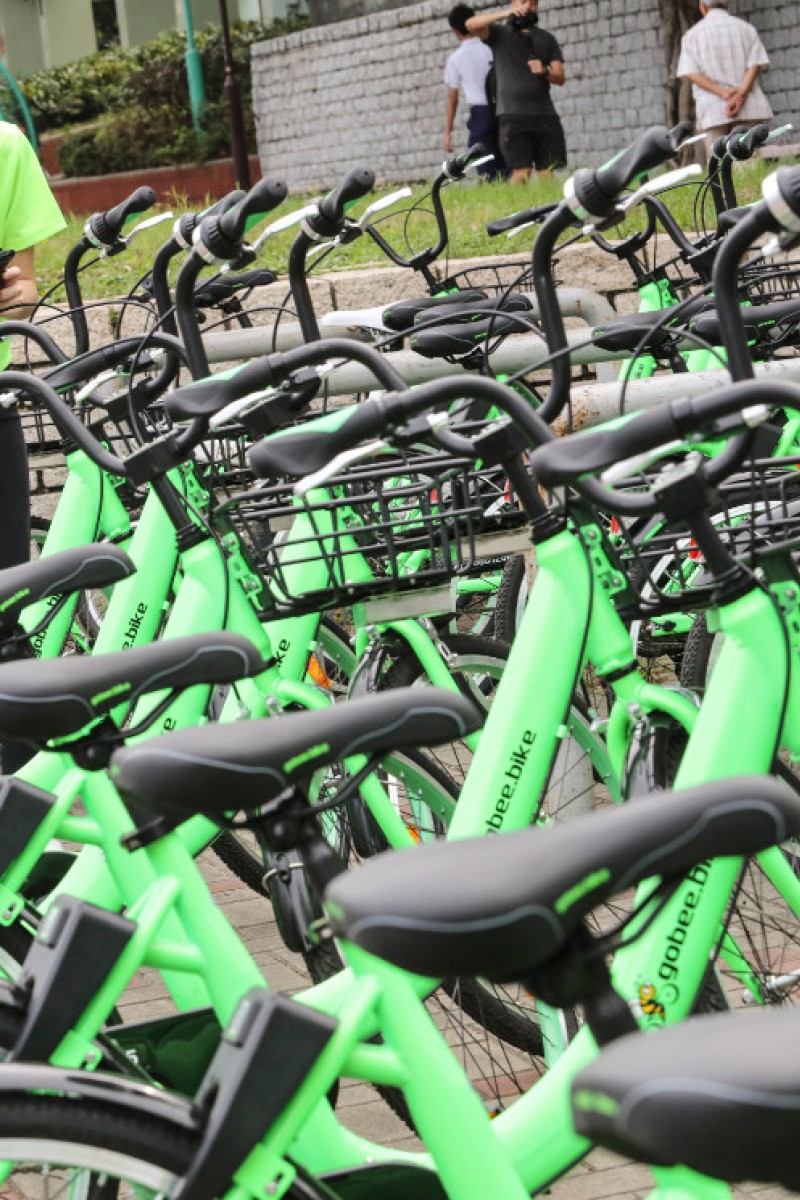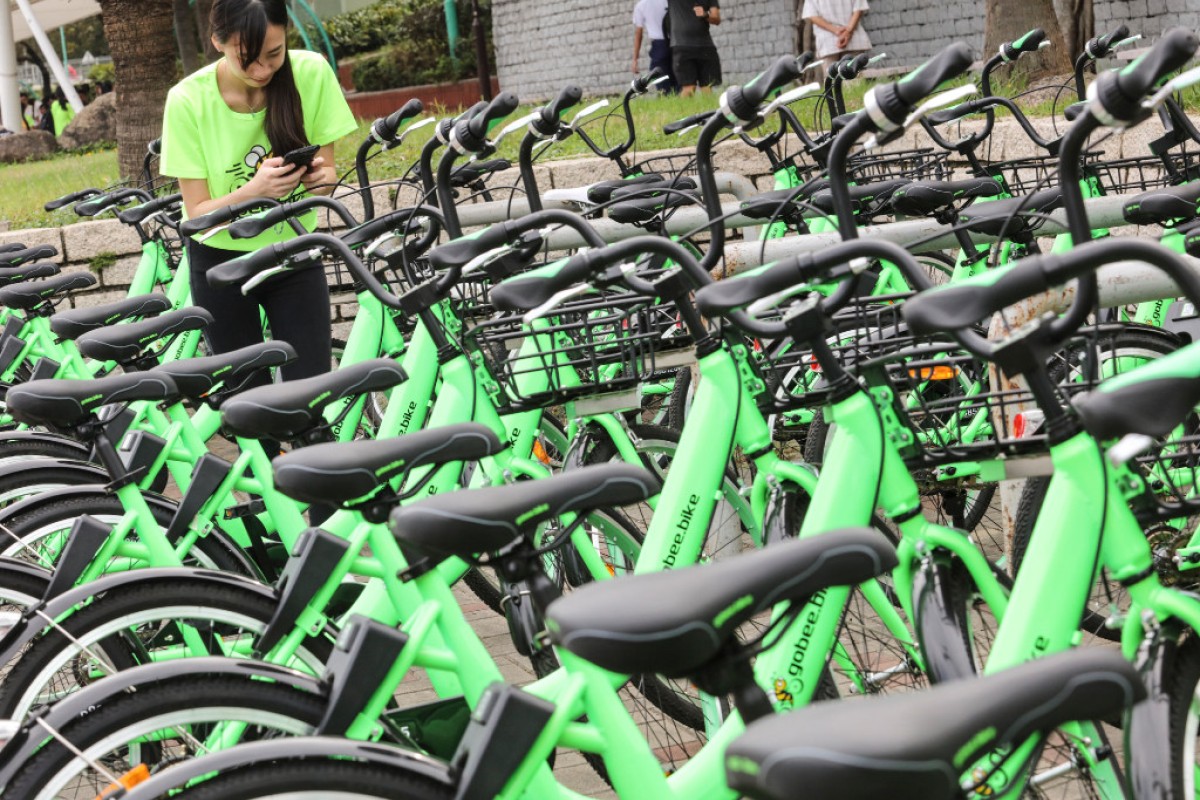
Hong Kong’s new bike-sharing company Gobee.bike having a rough ride
City’s first bike-sharing system plagued by problems ranging from vandalism and theft of bicycles to complaints of unfair competition
 Gobee.Bike has 400 cycles at the moment - but can they effectively ease congestion?
Gobee.Bike has 400 cycles at the moment - but can they effectively ease congestion?The newly launched Gobee.bike would appear to be a long-overdue boost to the development of Hong Kong’s sharing economy. The city’s first bike-sharing system can be compared to China’s Uber-equivalent Didichuxing and Taiwan’s Youbike.
Amid the hype, Gobee.bike has been plagued by problems, ranging from the vandalism and theft of bicycles, to leakage of personal data and complaints of unfair competition.
Gobee.bike was the brainchild of a local startup, whose vision was to provide an alternative mode of commute between existing public transport stations. The company currently has 400 smart bicycles spread over Sha Tin, Tai Po and Ma On Shan, with plans for further expansion. Using a simple mobile app, people could locate the nearest bike available and activate the service by scanning a QR code. Indeed, it seemed to be a long-awaited remedy to our city’s notorious congestion and pollution – apart from the fact Hong Kong is known for its poor cycling infrastructure and has fewer than 400 public bicycle parking spaces in Kowloon and on Hong Kong Island. (Yuen Long, on the other hand, has more than 14,000 designated spaces, which says a lot about their unequal distribution.)
I doubt whether Gobee.bike can actually achieve what it has set out to do – to solve “The Last Mile Problem” by covering the distance between transport hubs and final destinations. While founder Raphael Cohen claimed to have received a positive response from the authorities, in 2015, a spokesman for the Transport Department discouraged the use of bicycle in urban areas, citing Hong Kong as “small and densely populated” with “narrow and crowded” roads.
Should Gobee.bike fail to grow beyond traditional biking “hot spots” such as Sha Tin, Tai Po and Ma On Shan, it would be nothing more than a high-tech version of another recreational bike rental business. While there is nothing wrong with recreational biking, it is a far cry from the “sharing economy” that promises to optimise underutilised resources in everyday life.
Uber, another ride-sharing business, has faced many legal challenges and crackdowns. With 30,000 drivers and more than one million passengers, the company – founded in 2014 – perhaps fulfils a more dire need in Hong Kong and is more compatible with our city’s infrastructure.
Nonetheless, firms which own local taxi licences have vehemently opposed Uber’s operations, which would threaten their oligopoly. One licence is worth around HK$6.6 million.
Unlike the taxi industry, traditional bike rental store owners have little influence over government decisions. Operators of bike rental shops have criticised GoBee.Bike for using free public parking spaces, while they have to pay high rent to run their business.
If a sharing economy is to succeed, the government needs to is not prepared to facilitate newcomers, and not impede incumbent operations.